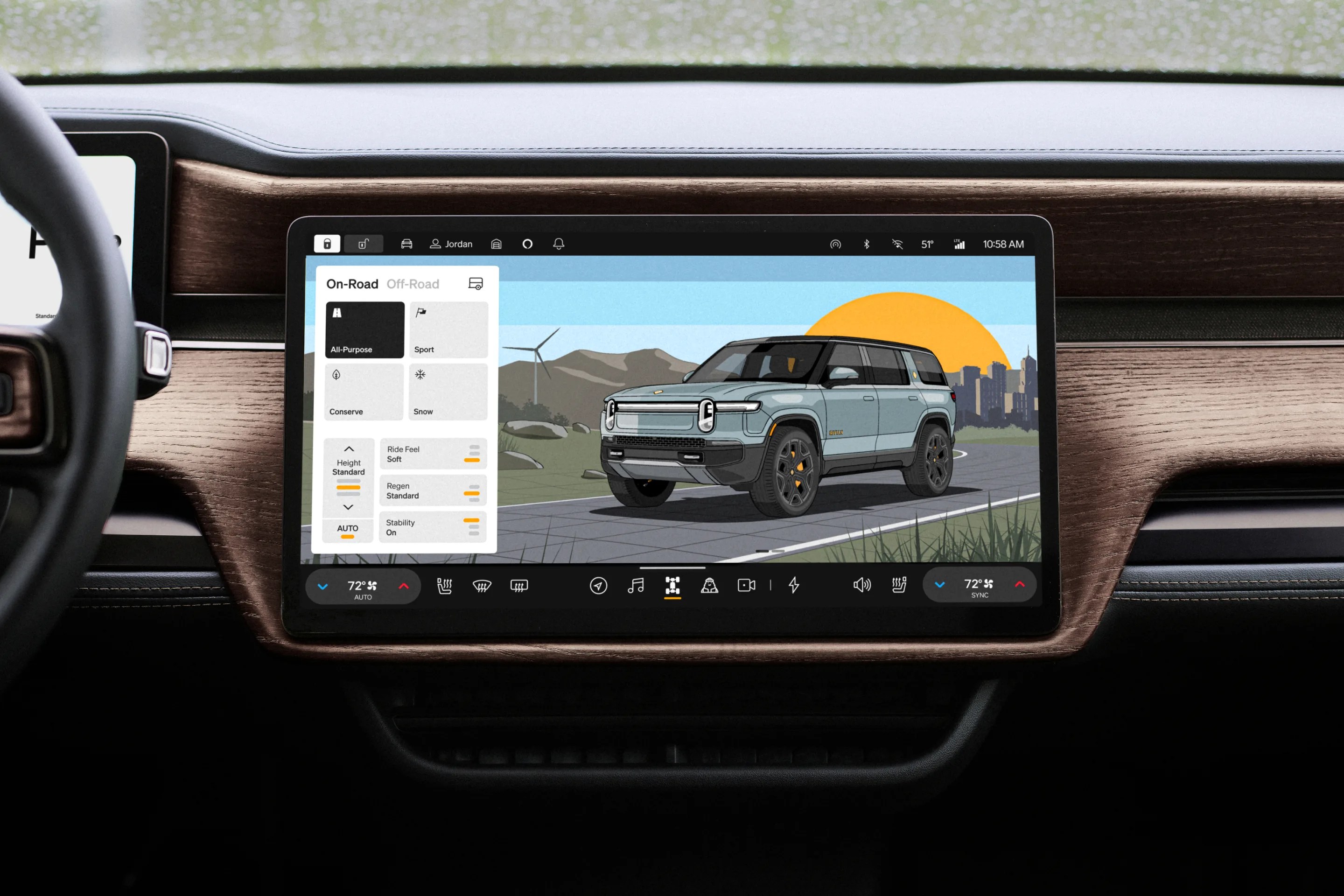The spotlight has been on Rivian’s long-term health for a bit now. With the company under financial pressure to get over the hump of moving from its R1 lineup into its R2 future, where the company is expected to experience its Tesla Model Y moment, there has been doubt thrown around about its ability to survive financially until then.
Enter Volkswagen. In a blog post, Rivian announced that the two companies have entered into a joint venture where Volkswagen will utilize Rivian’s software platform and electrical platform in its future electric vehicles. The company is going to pay Rivian $5 billion over the years as part of the partnership.
The partnership is anticipated to accelerate the development of software for Rivian and Volkswagen Group. It is expected to allow both companies to combine their complementary strengths and lower cost per vehicle by increasing scale and speeding up innovation globally. Rivian’s proven in-market zonal hardware design and integrated technology platform are expected to serve as the foundation for future SDV development in the JV that will be applied to both companies’ vehicles. Rivian plans to contribute its electrical architecture expertise and is expected to license existing intellectual property rights to the joint venture.
Oliver Blume, CEO of Volkswagen Group, said in a statement, “Our customers benefit from the targeted partnership with Rivian to create a leading technology architecture. Through our cooperation, we will bring the best solutions to our vehicles faster and at lower cost. We are also acting in the best interest of our strong brands, which will inspire with their iconic products. The partnership fits seamlessly with our existing software strategy, our products, and partnerships. We are strengthening our technology profile and our competitiveness.”
RJ Scaringe, Founder and CEO of Rivian, said, “We’re very excited to be partnering with Volkswagen Group. Since the earliest days of Rivian, we have been focused on developing highly differentiated technology, and it’s exciting that one of the world’s largest and most respected automotive companies has recognized this. Not only is this partnership expected to bring our software and associated zonal architecture to an even broader market through Volkswagen Group’s global reach, but this partnership also is expected to help secure our capital needs for substantial growth. Rivian was created to help the world to transition away from fossil fuels through compelling products and services, and this partnership is beautifully aligned with that mission.”
The companies say that the first vehicles to benefit from the joint venture will start to ship in the second half of this decade.
Could Rivian build a software platform for all EVs?
This is a really interesting partnership and a tip of the hat to the quality of the software platform that Rivian has built for its own electric vehicles. Until Rivian came along, the only software in an EV (or any vehicle for that matter) that was actually good was the operating system that Tesla runs in its own EVs.
Rivian was the first EV I’ve seen that made a comparable experience for consumers and broke the usual mold alongside Tesla in a market where carmakers have been historically terrible at making software for their vehicles. That crappy experience, at least before we started to get EVs, was what fueled the adoption of Apple CarPlay and Android Auto in the majority of vehicles.

However, until now, each EV company’s software platform has remained exclusive to themselves. Now, Rivian is making its platform available to another EV maker. We’ll have to see how this agreement and implementation pans out, but I wonder if the company sees an opportunity to turn itself into an operating system for electric vehicles like Apple and Google have made themselves the defacto operating systems for smartphones.
If it could pull something like this off, it could set itself up for an entirely separate business model outside of needing people to buy its own vehicles. It’s honestly a smart move. Tesla probably could have done this, but if Rivian can capitalize on this first, it could become the defacto software platform to use on more and more EVs — because, as we all know, carmakers suck at making software.
Between this joint venture and its potential future implications, new subscription products on the way for certain software features like more capable self-driving, being only a couple of years away from launching the mass-market R2, and rumors of some kind of partnership with Apple, the opportunity is there for this company.

